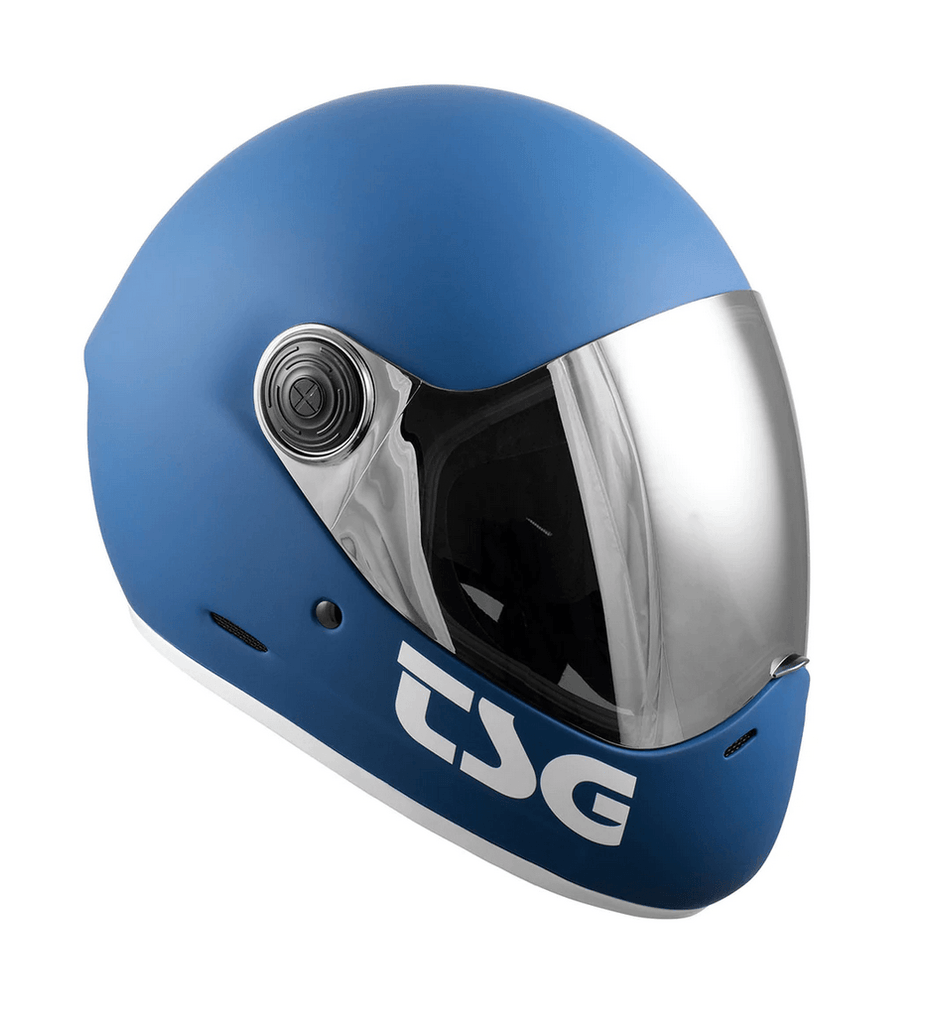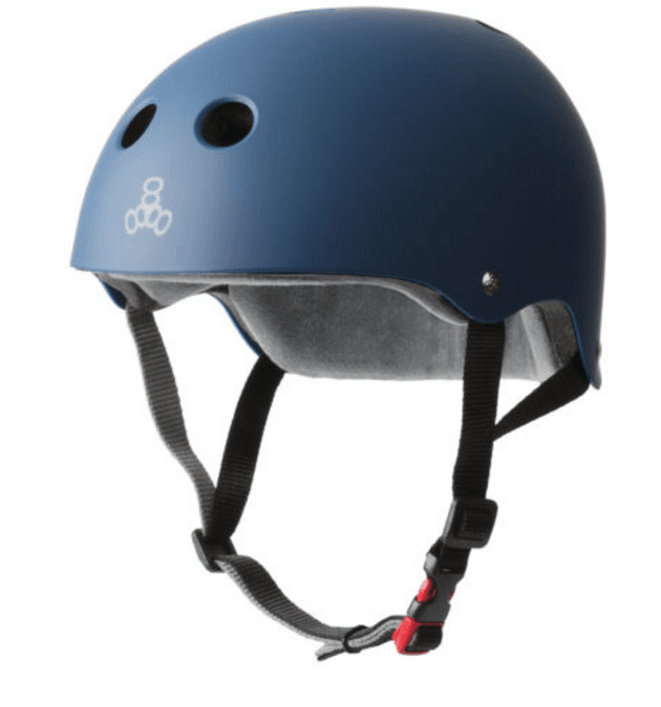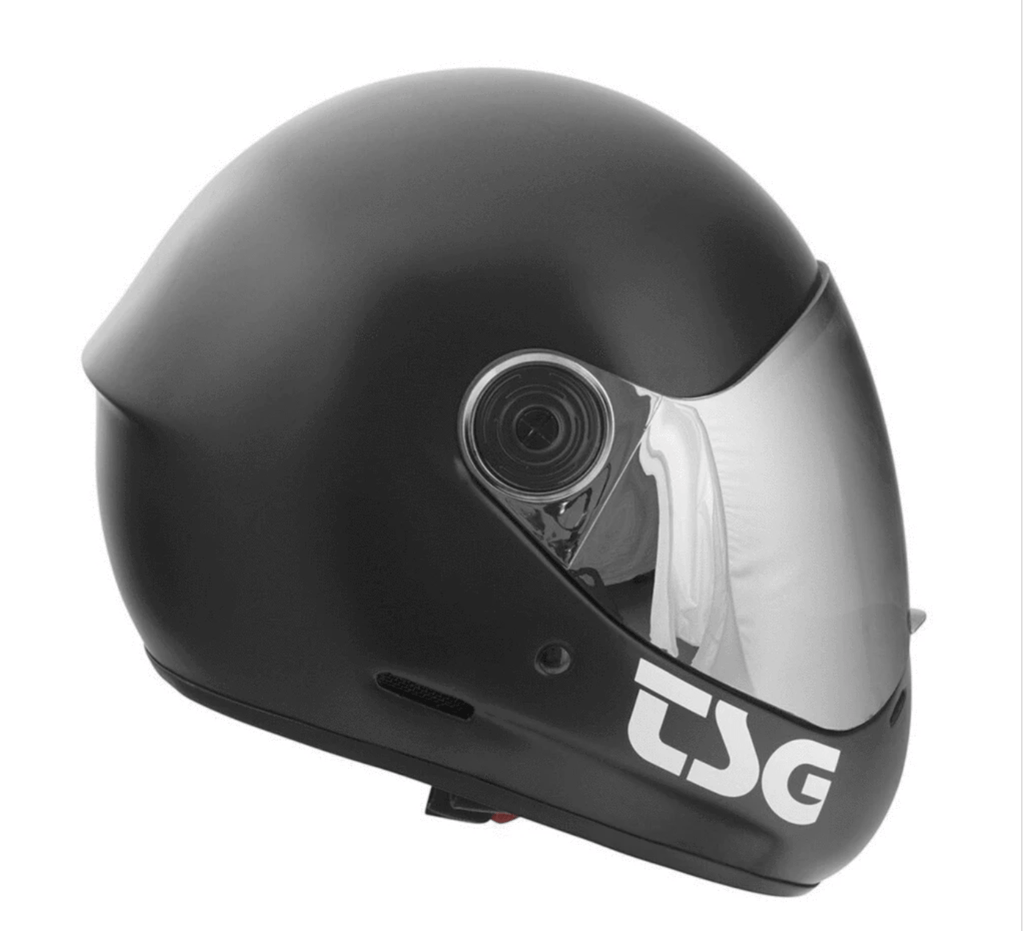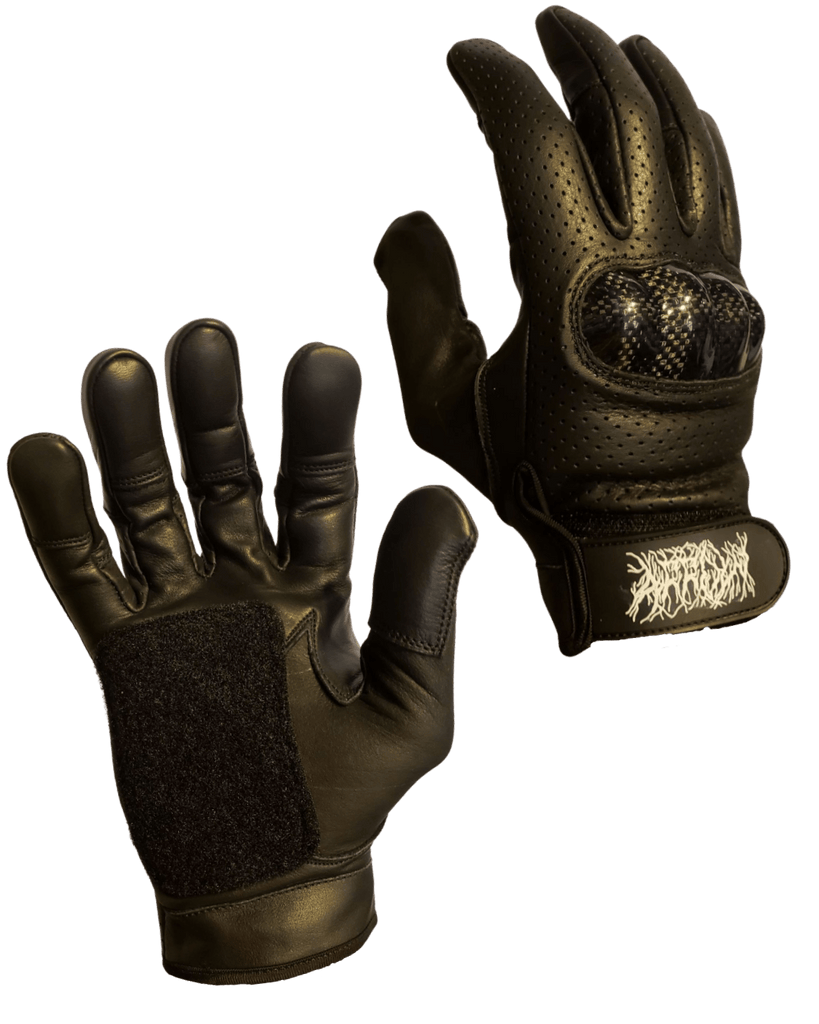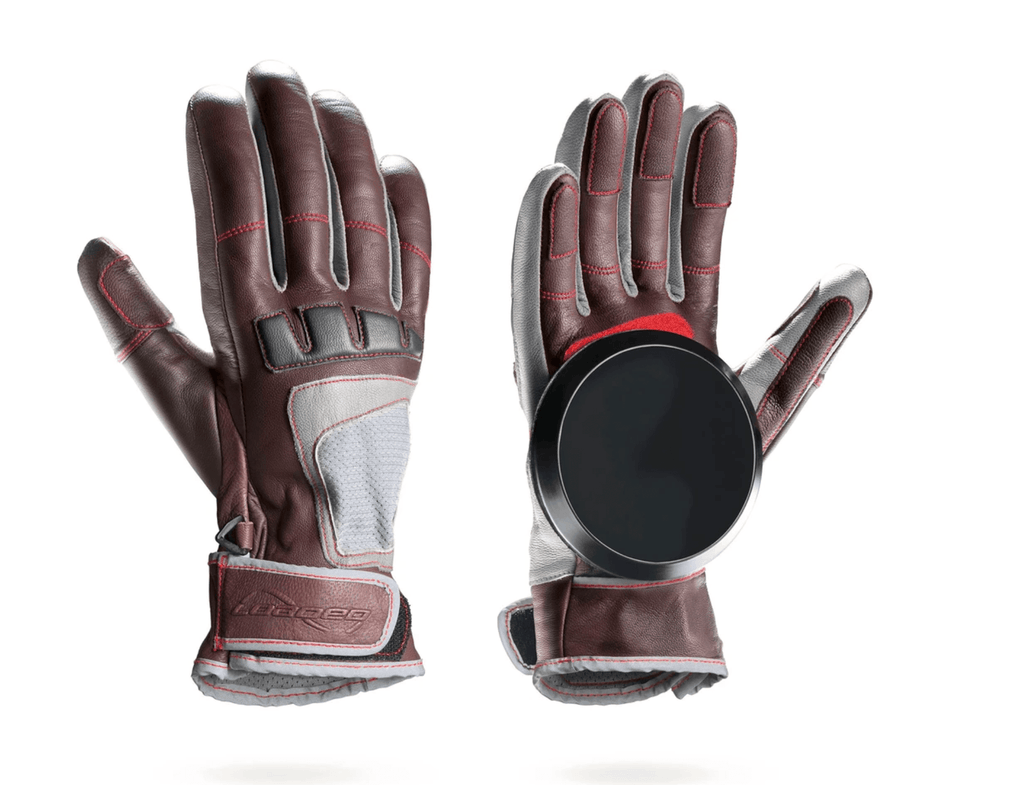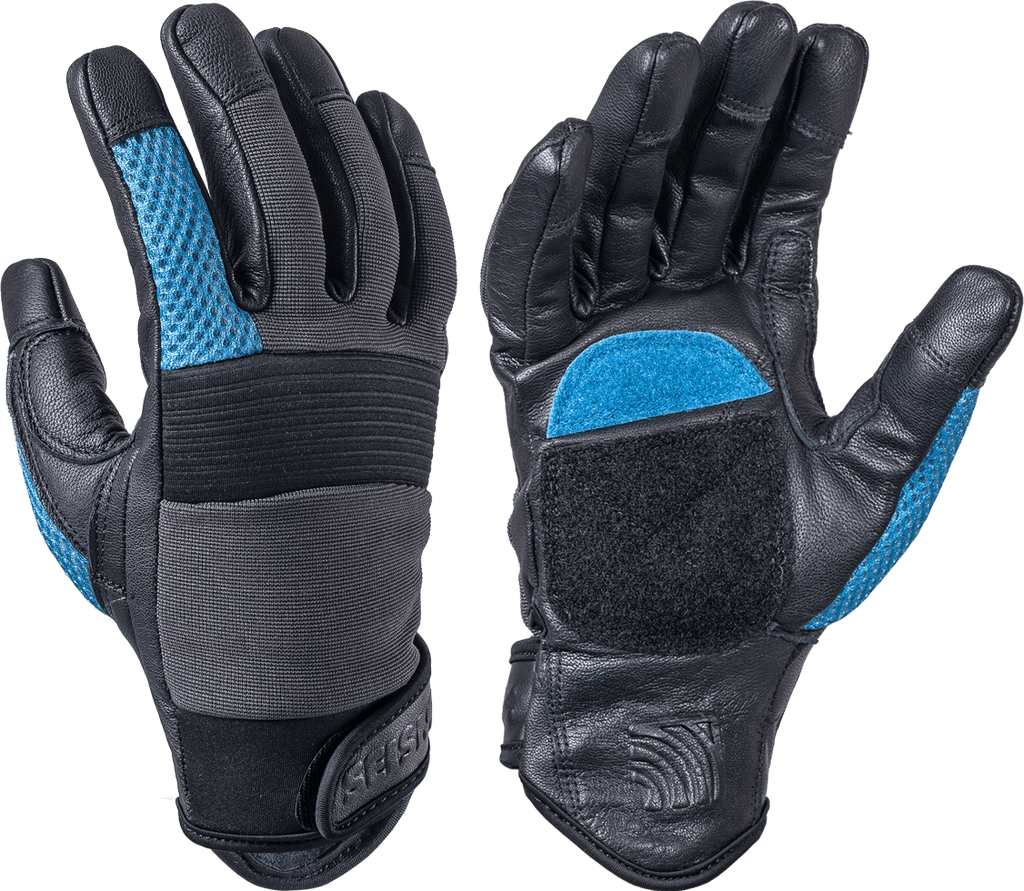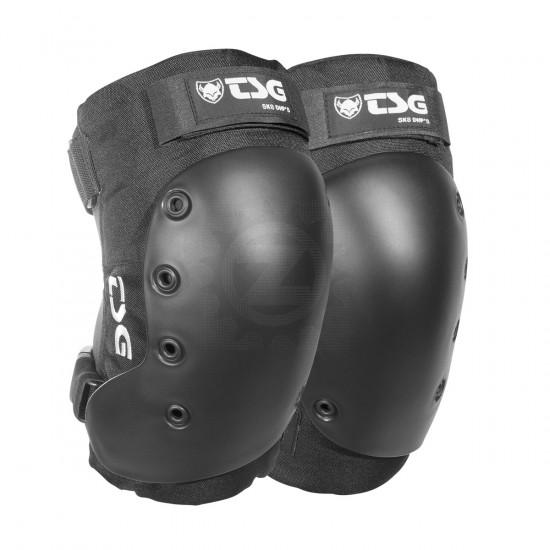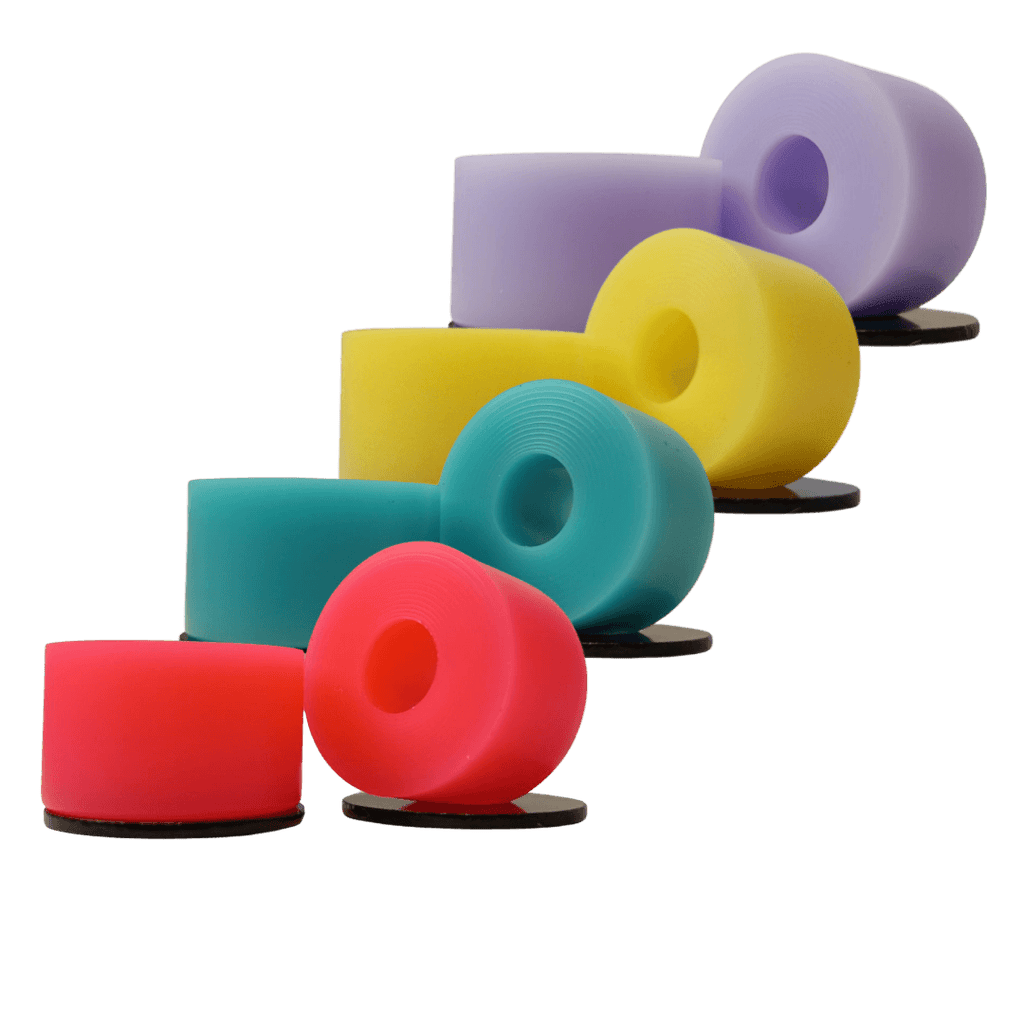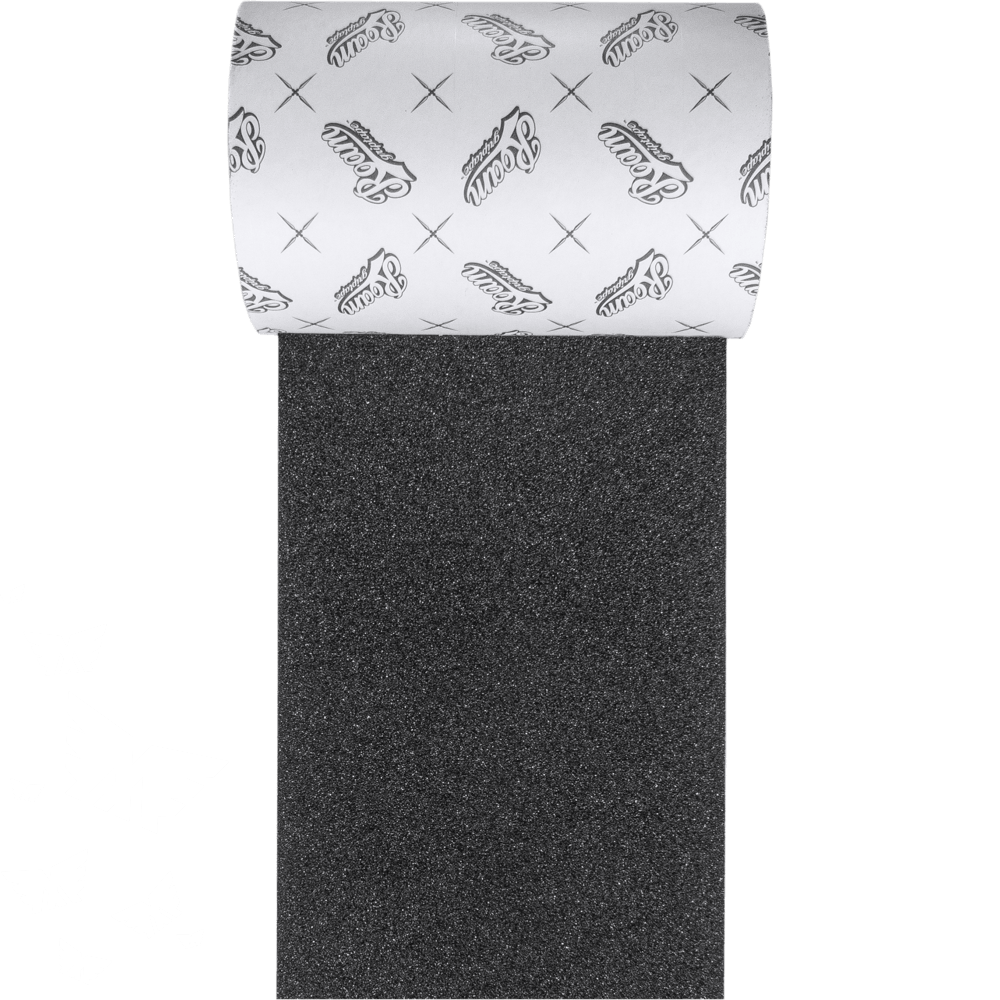
Longboard Buying Guide: Downhill
Downhill
Since the advent of the skateboard in the 1950s, racing has been a staple part of skateboarding culture. Bragging rights and a hunger for adrenaline have pushed downhill skateboarders to race each other down the fastest, most technical hills in the world. Over the years, innovators have found that longer decks, soft urethane wheels, and wide trucks are better suited for handling the ever-rising speeds that downhill racers manage to achieve. The longboard market has recently exploded with new companies producing components for downhill longboards. Read this guide to help you through choosing your first downhill longboard.
Extras for Downhill
Covered in this Section (in order of importance)
Helmet and gloves are required. Kneepads if you plan on falling a lot!
Ideal bushing hardness corresponds to rider weight (mostly) and board setup.
Drop-through strips for drop-through decks and shock pads for top mount decks!
Grip is good, therefore more grip is more good.
1. Choosing Safety Equipment
Although it may be tempting to spend all your hard-earned cash on your fancy downhill setup, you have to make sure you also have enough of it left over to get yourself some solid protective equipment. We recommend that you have — at the very minimum — a helmet and gloves before you start riding hills. A set of knee and elbow pads are also a good idea, but whether or not you choose to purchase them is up to you. (We’ve all got them around here and when we’re checking out new terrain we throw them on until we’re comfortable with the hill.)
Choosing a Helmet
As far as a helmet goes, anything will be better than nothing, but a helmet with full face protection will be the best choice for downhill. A bike helmet, a football helmet and a paragliding helmet have all been used around here, but we prefer The 187 Pro Skate Helmet for lighter downhill, and the Predator DH-6 for our aggressive rides. Some states require that all helmets be CPSC certified, so if yours is one of these states, be sure to find the CPSC seal of approval. The Predator DH-6 happens to be CPSC certified, so you’re on the right track with that puppy!
Click on a product to see more details.
Choosing Slide Gloves
Slide gloves come in many shapes and sizes, but as long as you’ve got a palm puck (preferrably made of UHMW, Delrin or another high-quality plastic) and the gloves fit well, you’re on the right track. Many gloves feature finger pucks for those riders who like to drag their fingers while they ride. Whether or not your gloves have them is up to you. (We don’t use them because we like to grab our boards without worrying about the extra pucks.) Lastly, having a leather glove (like the Sector 9 Driver Gloves) is an advantage if: you think you’re going to be falling a lot and/or if you skate in cold weather. They’ll protect your hands and keep them warm. If you skate in warm weather, grab some gloves with a mesh backing like the Sector 9 BHNC Gloves.
Click on a product to see more details.
Choosing Knee Pads
Although we don’t really want to fall to our knees, it does happen from time to time. And it’s better to fall to your knees than your face, right? I think so, too. If you want to protect your knees without a lot of kneepad, grab The 187’s Fly Knee Pads. If you think you’d be more comfortable having more protection on your knees, The 187’s Pro Knee Pads offer extra padding and a removable knee cap in case you wear through the first one. There are also some knee gaskets on the market from Smith called “Scabs”. The Scabs will protect your knees from bumps, but they don’t have a plastic cap. This makes them nice to wear under pants (or under Fly Knee Pads), but not so nice if you’re planning on doing some knee slides.
Click on a product to see more details.
Choosing Racing Leathers
If you’re totally gung-ho about the downhill racing scene, you may want to consider investing in a set of racing leathers. This full-coverage leather suit will protect you from road rash at higher speeds and will be more aerodynamic than that flannel jacket you’ve been wearing every time you go riding. Racing leathers don’t come cheap (a custom set will set you back ~$1,500) but quite a few riders have had good luck finding used leathers on eBay and even some thrift stores.
2. Choosing Bushings
Bushings will serve as the next step in fine-tuning your downhill setup. If you’re just starting out, the stock bushings will work just fine to get you acquainted with your board, but may not be so good for higher speeds. The world of bushings can be a very complicated thing since there are a large number of factors to consider. Truck design, board flex, personal preference and rider weight all play a part in selecting the right bushings for your downhill setup.
If you do decide that you want to upgrade the bushings, here’s a quick and easy way to start off. Keep it simple and buy some Venom DH bushings in a durometer that corresponds to your weight. (It’s always a good idea to have extra bushings lying around, so don’t be afraid to collect!)
Here’s a little durometer chart that we think is acceptable for the type of downhill setup we recommended (a low, stiff deck with reverse kingpin trucks):
50-100 lbs: 78-80a
75-125 lbs: 80-85a
100-145 lbs: 85-88a
125-175 lbs: 88-93a
145-195 lbs: 90-94a
175-220 lbs: 91-97a
220 lbs and up: 94-97a
This will get your started, but be prepared to play around with the setup until you find out what will work best for you. In the end it comes down to preference, so what we suggest may not be your “ideal” setup. It just takes time.
Click on a product to see more details.
3. Choosing Risers
Risers (or shock pads more specifically) will help protect your deck from unwanted wear-and-tear due to the trucks rubbing directly on the deck. We recommend using a set of ⅛” Khiro Shock Pad for top mount decks and a set of ⅛” Khiro Drop Through Shock Absorbing Strips for drop-through decks. In both cases, these shock absorbing pads will go between the truck’s baseplate and the deck, although in a different style. For the top mount deck, the shock pads sit between the bottom of the longboard deck and the top side (when mounted properly) of the truck. For the drop-through deck, the shock strip will rest between the top of the longboard deck and the bottom side (when mounted properly) of the truck’s baseplate. If it sounds complicated, there’s no need to worry. When you’re buying a complete from our site, we’ll do all the installation for you. If you’re doing it yourself, you can find a video for assembling a drop through deck on our YouTube channel.
Click on a product to see more details.
4. Choosing Grip Tape
Choosing the “right” kind of grip tape to adhere to the top of your downhill deck is one of the choices that comes down to personal preference. Some riders prefer to have their feet stuck to the board with Vicious Grip Tape, while others may want to have the ability to move their feet with ease so they may choose to go with standard Jessup Grip Tape. The “stock” grip on most longboards will be just fine to begin with. (For most of the boards we carry, this happens to be Jessup.) We do, however, recommend a slightly more coarse grip for the times when you want to start riding larger hills. Vicious, Edger and Jessup Super Coarse are doing the trick for us at this time.
Click on a product to see more details.

